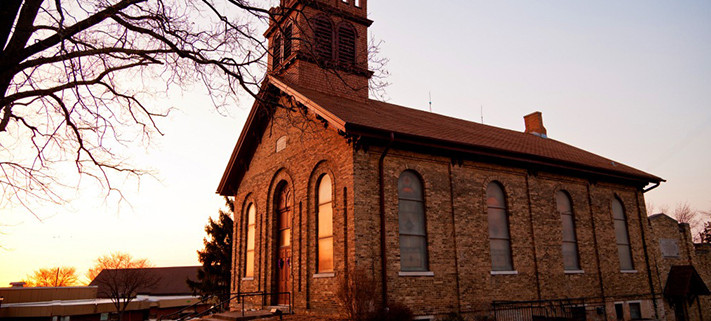What do we do when our children struggle with jealousy?
Since Cain and Abel, the devil has used jealousy to drive a wedge between siblings and make parents crazy. What can we do to help equip our children—and ourselves—for this battle? This month’s Heart to heart authors provide their perspectives.
For a deeper look into the account of Cain and Abel, read “Sin that entangles” at blog.nph.net.
God’s timing is always perfect. I received an e-mail asking me to write about jealousy among siblings right after I received the call from the director of the upcoming young actors’ production. The news came in; Micah didn’t receive a part, and his brother Silas did. Micah is the one who has been in a number of productions. Silas has only auditioned once before. This was setting up to be the perfect scenario for a great article on jealousy. All I had to do was watch and see what happens.
The first day of rehearsal came. Silas got ready to go. Micah got up from his video game, walked him out, and said, “Have fun, Silas. You will have a blast.”
Wait, what? Where was the drama? Where was the anger? And most important, where was the jealousy?
When I had a chance to talk to Micah one-on-one, I asked him, “How are you doing it?”
“Doing what?”
“Every day you are watching Silas do something that you love. And you are being so gracious and encouraging. How are you doing it?”
He replied, “I don’t know. I guess I just focus on him more than myself.”
Our conversation led to the old Cherokee legend that talks about the battle going on inside each one of us. In the legend there is the battle between a good wolf and an evil wolf. The battle is won by the wolf that we feed.
As Christians we know this battle. It is the battle between our flesh and the Spirit. One is anger, envy, jealousy, sorrow, regret, greed, arrogance, self-pity, guilt, resentment, inferiority, lies, pride, superiority, and ego. The other is love, joy, peace, patience, kindness, goodness, faithfulness, gentleness, and self -control. Which one wins? The one that we feed.
Micah knows who he is in Christ. He gets what it means to love others. He gets what it means to put others before himself. The fruit of this child shows his relationship with his heavenly Father is living and active. Ah, if only I could “get it” like my 12-year-old son.
This doesn’t mean that tears have not been shed. It doesn’t mean that Micah doesn’t struggle when he thinks about seeing his brother on stage while he will be in the audience. What it does mean is that in these struggles, he knows he has a choice: a choice to walk in the flesh or to walk in the Spirit. Our most important job as parents is to cultivate our children’s relationship with their Savior. The more they know who our God is, the more they know his voice, and the more they walk with him.
Jenni Schubring and her husband, Tad, have four children.
“It’s not fair,” my granddaughter insisted. “He’s playing with the toy I want!”
Jealousy. It’s inextricably woven into the fabric of family life. Siblings constantly compare who has the biggest or the best, who is most loved or most favored, who got the largest piece or the lesser penalty.
“It’s not fair!” Anger radiated from her stance. Eyes glared. Lower lip pouted. Elbows flared from her hips like flying buttresses.
Jealousy springs from the sin-infected core that festers in us all. It’s more obvious in children because they haven’t learned to mask it as well as adults. It’s apparent in the 7-month-old who doesn’t want anyone else, even Dad, to hug Mom. It’s in the 27-month-old who insists that the toy he tired of ten minutes ago still belongs to him. It’s in the 7-year-old who has learned to cover over her jealousy by calling for fairness. It’s in the seventh-grader who didn’t make the cut for the basketball team and is angry with those who did. It’s in the 17-year-old who contends that he alone, of all his friends, lacks a cell phone.
“It’s not fair!” she shouted again. This time her right foot punched against the floor . . . once, then a second time.
You might expect some advice at this point about helping kids recognize how jealousy has clawed out of their hearts, but this article is heading in another direction. A more personal, introspective direction.
I’m uncomfortable seeing jealousy in my grandkids because I know that I wrestle with it. We never outgrow sin’s selfishness, so none of us ever outgrows jealousy. Worse, jealousy is more infectious than the flu. I recognize that at times I teach everyone around me more about being jealous of others than about being content with the gifts my heavenly Father has given me.
I have to face it: My granddaughter’s selfish indignation was, to some degree, a reflection of the jealousy she had seen in me. I taught her how to grumble about a friend who has a larger bedroom, a newer doll, or a faster computer. I demonstrated for her how to express pained injustice when someone else stole “my parking place” at Walmart. She even might have seen me pout when the family voted down my choice for the last Netflix movie.
Helping my grandchildren overcome jealousy means I must face my own jealousies. My apology for failing to set a better example will go farther than the wag of an accusing finger. Even better is rejoicing together over God’s forgiving grace.
But why stop there? Think of the power in teaming up against jealousy. My grandkids and I can commit to encouraging each other to be content, whatever our circumstances. How wonderful to hear, “Papa, quit complaining. Jesus always provides everything that’s important.”
James Aderman and his wife, Sharon, raised three daughters and are now enjoying their grandchildren.
On our son’s first night home from the hospital, then three-year-old Anna, truly thrilled to be a big sister but exhausted from all the excitement, proclaimed angrily as she went off to bed, “Everything is not fair!” I’ve spent the last two-and-a-half years trying to convince her that what she proclaimed that night was truth.
Nobody warned me that I’d need a training course in refereeing to parent two children. My life has suddenly turned into constant repetition of the phrases: “Work it out!” “Get off of your sister!” “Use your gentle hands!” and “I love both of you very much, neither more than the other.” Though my kids adore each other—it’s truly a blessing how well they usually play together—neither of them likes to feel that the other is getting a larger share of attention, fun, or other good things.
Anna had a loose tooth. Henry pretended his teeth were loose. Anna got mad that Henry was trying to steal her thunder.
Henry and I went to the zoo on a sunny morning to give him something to do other than systematically destroy our house. Anna found out after she got home from school and was angry she didn’t get to go along. Henry saw her reaction and talked about nothing but lions for the remainder of the day, resulting in Anna seething not-so-silently throughout dinner.
Anna, as a first-grader, gets to participate in fun activities like school, Lutheran Girl Pioneers, and birthday parties. Henry often has a hard time understanding that younger siblings are not always welcome at these events and that his time for these activities is coming.
Determining my role in their developing relationship has been tricky for me. I want them both to be happy. Don’t all mothers wish that for their children? But happiness is not a constant, nor a guarantee. So I try to focus on teaching them to deal in healthy ways with the frustrations and disappointments that come with the many great blessings of having a sibling. There will be times when things aren’t equal. There will be situations that are unfair. But I want them each to have the stability of knowing they are loved, regardless of what is going on in the moment.
I want them to enjoy the same experiences and to know that I want to spend time with them both. I hope they grow from this playmate/enemy relationship into a close friendship like I now enjoy with my adult brother and sister. But there’s only one of me. And between trying to keep us all fed, in clean clothes—at least until a spill or fall change that—and somewhat entertained, balance is a bit hard to achieve. Henry, as most two-year-olds are apt to do, requires a lot more of my attention than six-year-old Anna does. Some days she handles this well. Other days, I’m thankful she doesn’t have access to eBay to rid herself of her sweet but pesky brother.
It’s normal and natural for siblings to fight and argue. My goal is to teach them that, while life isn’t always fair, they are, regardless of circumstances, loved immensely by God and their parents. My hope is that by loving them each for who they are, they will grow into adult siblings who can love and support each other.
And maybe along the way the “stop looking at me!” fight will die out. A mom can dream. . . .
Kerry Ognenoff and her husband, Andy, have two young children.
Do you have a manuscript, idea, or story from your own life you’d like to share for use in Forward in Christ or on wels.net? Use our online form to share it to our editorial office for consideration.
Get inspirational stories, spiritual help, and synod news from Forward in Christ every month. Print and digital subscriptions are available from Northwestern Publishing House.
Author: Multiple
Volume 102, Number 4
Issue: April 2015
Copyrighted by WELS Forward in Christ © 2021
Forward in Christ grants permission for any original article (not a reprint) to be printed for use in a WELS church, school, or organization, provided that it is distributed free and indicate Forward in Christ as the source. Images may not be reproduced except in the context of its article. Contact us





